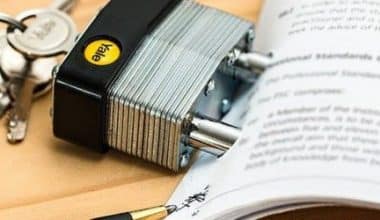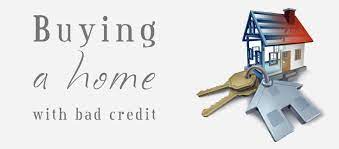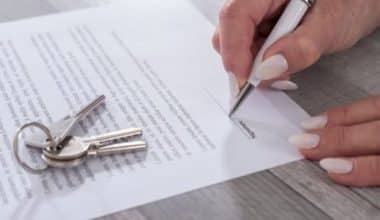Escrow appears to be a made-up word that might be used to cheat at Scrabble. And believe me when I say it’s true! However, it is more than just a term in Scrabble. If you have some level of interest to own a property of your own someday, then you need to pay attention to escrow. You don’t hear much about escrow until you’re in the process of purchasing a home. Maybe you’ve seen a “For Sale” sign that says “In Escrow” at the top and wondered what that meant. Worry not, it’s for this reason we crafted this article. Let’s take a closer look at how to refinance an escrow refund to learn more about it and why it’s so crucial when buying or selling a home.
What Is an Escrow Refund?
Because of RESPA, the amount of money you can keep in an escrow account is limited. When the balance in your account surpasses the following payment plus two months’ worth of payments, you are entitled to a refund. RESPA further stipulates that the overage must be larger than $50 in order to be eligible for reimbursement. If it’s less, the mortgage servicing business can keep the money and apply it to future bills.
Escrow refunds are also possible when you pay off your mortgage in full. The account’s remaining funds must be returned to you. Some governments pay interest on escrow payments, which might result in a surplus and the requirement for a return.
Outside of the aforementioned, some of the more usual reasons for escrow refunds include decreased tax bills, switching insurance companies for a better rate, overpayment at the time of purchase, or you and the mortgage company paying the same bill and the remainder being returned to the company.
There are no restrictions on the amount of money you can receive as a refund, which makes sense given that it is your money. The only restriction is that the total must exceed $50. Following the analysis and identification of the overage, RESPA requires the lender to repay the monies to you within 30 days.
What Is an Escrow Account?
After you’ve closed on your mortgage, your mortgage servicing firm will open an escrow account in your name. The goal of this account is to keep money in it so you can pay your property taxes and homeowner’s insurance. This is done to preserve the company’s interests in your home by ensuring you pay all of your bills on time.
Understanding the language is the first step in figuring out “what is an escrow account.” Escrow is a term that refers to a third party keeping an item and then acting on it when specific circumstances are okay. The bank acts as a third-party holder of your funds and pays your bills when it’s time to collect.
Escrow accounts are governed by the Real Estate Settlement Procedures Act (RESPA), which was approved by Congress in 1974. The law enables the mortgage company to keep a quarter of its payments for property taxes and homeowner’s insurance. It also allows the corporation to store up to two months’ worth of extra escrow payments as a safety net to ensure that bills are not late.
How to Calculate Escrow Amount
In most cases, calculating your escrow refund is straightforward. First, you must determine the amount of your monthly escrow payment. Your payment is up to your property taxes as well as your homeowner’s insurance premiums. Because these are annual figures, you must divide them by 12 to get the monthly rate. Once you’ve done that, add them all up to determine your escrow payment amount.
The next step is to think about how much of a cushion the lender can keep under RESPA. This is the equivalent of two months’ worth of payments. Multiply your monthly payment by three to account for the next month’s payment as well as the two-month cushion. The total amount the mortgage servicing firm will keep in your escrow account is the amount you obtain here.
Take this number and compare it to the account’s current balance. You may be eligible for a refund if the balance in your account is $50 or more than the amount you calculated. Again, there are no restrictions on how much money you can get back. The only stipulation is that it must exceed $50.
You can always wait a few months if you aren’t in a hurry to get your money back. Most mortgage lenders conduct an escrow analysis a few times a year, and the overage will be noticed. However, if you need your money right away, you are under RESPA and can contact your mortgage servicing provider to make a request.
When Do Escrow Refunds Occur?
Escrow refunds can happen in a number of ways. Although the specifics will vary depending on your situation. There are a few situations in which you may be eligible for an escrow return.
#1. Paid off the Mortgage Completely
You will be eligible for an escrow refund if you have a leftover balance in your escrow account after you have paid off your mortgage. After you pay off your mortgage in full, servicers should return the remaining balance to your escrow account within 20 days.
#2. Lowered Tax Bills
Tax bills can fluctuate from year to year. There’s a chance you’ll get an escrow refund if your property tax bill is reduced.
#3. Insurance Companies Changed for a Better Rate
You may be entitled to an escrow return if you are able to transfer your homeowners’ insurance for a lower cost.
#4. Overpayment When Purchased
You may be eligible for an escrow refund if you made a bigger than necessary upfront payment at closing.
What Are Escrow Refund Checks?
The number of surplus funds in your escrow account will be reflected in an escrow refund cheque.
If you’re qualified for an escrow return, the loan servicer will most likely send you a check after performing its mandatory annual escrow account analysis. Loan servicers check that your escrow payments match up with the bills paid out of this account during this review. Which can happen at any time of the year.
As an example, suppose your property tax bill was in July. Since then, you’ve made on-time payments on your mortgage. As a result, when an annual escrow account review is in December. You should have excess monies in your escrow account. The loan servicer may issue a refund check at that point. It’s possible, however, that you’ll have to submit a request to obtain the reimbursement check.
What Is A Refinance Escrow Refund?
You might be able to get a lower monthly payment if you refinance your escrow refund. It’s possible that this decision will result in an escrow return.
Your escrow refund account will not be affected if you refinance your mortgage with your current lender. That is, any cash in your account prior to the refinance will remain in the original escrow account. As a result, unless the property taxes or insurance associated with your home have changed considerably, you shouldn’t expect an escrow refund.
However, if you refinance with a new lender, things will be different. The new loan servicer will open a new escrow account for you after you complete the refinance of your escrow refund with a new lender. Your initial escrow account will be closed as a result. You should receive a payment for the leftover money once the original escrow account is closed.
When Do You Get Escrow Refund Checks?
You must be current on your mortgage payments in order to be eligible for a refund. If you are not current on your payments, your mortgage servicer may be permitted to keep the surplus and use it to pay for future liabilities.
If there is a balance in your escrow account that is greater than $50 and less than $1,000, the lender has thirty days to offer you a refund. On the other hand, if there is a surplus of funds in your escrow account that is less than $50, your lender has the option of either sending you a refund or carrying it over to the following year’s escrow payments.
How Do I Get Money Out of Escrow?
To cancel the escrow transaction, you are required to put it in writing. Before the buyer is allowed to cancel an agreement with the seller in the state of California, the buyer is required to send the seller a Notice to Seller to Perform in written form. The seller is required to sign the subsequent written cancellation of the contract and escrow that comes after that in order to properly withdraw from escrow.
What Is An Escrow Balance Refund?
A check for the total amount still outstanding in your escrow account is what’s known as an “escrow balance return.” In essence, this is a refund from the escrow account; however, rather than receiving a fraction of the balance, you will receive the whole sum that is still available in your account.
This transaction may become relevant for you if you have already paid off your mortgage but there is still money left in the escrow account that you use for your payments.
Can You Cancel Escrow for Any Reason?
It is possible that you will be able to terminate an existing escrow account in certain circumstances; however, the terms under which this can be done will vary from lender to lender. In certain circumstances, the loan must have been in existence for at least a year and have a perfect payment history with no late payments. Another criterion could be that there be no upcoming payments for taxes or insurance that are due in the next thirty days.
Can You Hold Money in Escrow?
When something is “in escrow,” it means that it is being held in some kind of legal holding account and that it cannot be retrieved until certain conditions have been met. Until the completion of a process involving a financial transaction, items are typically kept in escrow while the process is being carried out. Real estate, money, stocks, and securities are some examples of valuables that might be kept in escrow.
Mortgage Escrow Account?
A mortgage escrow account is a contract between you and your mortgage lender that ensures that your property taxes, homeowners insurance, and, if necessary, private mortgage insurance are all paid on time (PMI). If you have a down payment of less than 20% on a traditional mortgage, you will be required to pay PMI.
Your escrow account will most likely be the mortgage servicer who receives your monthly payments after closing. Despite the fact that you’ll only have to make one monthly payment. The servicer will split it between funding your escrow account and paying off your mortgage principal and interest. The amount of your payment that goes to escrow is usually less than the amount that goes to principal and interest.
Escrow accounts for mortgages are not to be with escrow accounts for home purchases. When making a purchase offer, you’ll pay earnest money to protect the seller in case the deal falls through. This money is frequently in escrow and amounts to 1% or more of the overall transaction price. The earnest money can be allocated to your down payment and closing costs once the home purchase is completed.
How Mortgage Escrow Accounts Work
Your escrow account’s annual and monthly charges will be during the mortgage application process and finalized at closing. The lender will figure out how much property taxes are to be for a year. As well as the homeowners’ insurance estimate you obtain and the expected PMI payments, if applicable.
When you pay some of the escrow in advance, your lender will open a mortgage escrow account. At closing, you will pay no more than one-sixth of the total expected annual escrow, allowing the lender or loan servicer to have a few months’ worth of payments in advance.
After the loan is over, the loan servicer will collect monthly payments for the escrow account, which will allow the company to pay taxes and insurance when they are due. For example, your local taxing authority may require property tax payments twice a year, and insurance payments may be due once a year. Those bills would be by the loan servicer, who would pay them from the escrow account.
Both the loan servicer and the homeowner profit from timely payment of taxes and insurance: If you miss a tax payment, the taxing body may place a lien on your home, and if your insurance coverage lapses.
Do Banks Hold Money in Escrow?
The escrow component of your monthly mortgage payment is deposited into the account by the lender each month, and the lender is also responsible for making timely payments of your insurance premiums and property taxes. Your mortgage lender may require an “escrow cushion,” which is authorized by the laws of the state, to cover unanticipated costs like a rise in taxes.
Does Escrow Balance Go Away?
It depends! At the conclusion of the escrow process, you will most likely receive a refund of the earnest money deposit you made. In most cases, this will be applied to the total amount of your down payment or your closing costs. On the other hand, in the event that you have a loan that requires no down payment and there is a surplus of your earnest money deposit, you may be eligible to receive a check.
Is It a Good Idea to Take Equity Out of Your House?
Home equity loans enable homeowners to take advantage of the value of their property and have access to cash in a hassle-free and expedient manner. It may be worthwhile to take out a loan against the equity in your home if you are certain that you will be able to make your payments on time, and in particular, if you utilize the money from the loan to make improvements that raise the value of your home.
Can a Mortgage Be Denied After Closing?
After the closing disclosure has been provided, is it possible for a mortgage application to be declined? Yes. Before you sign the final paperwork, many lenders may hire a third-party company that specializes in “loan audits” to verify your income, debt, and assets once more. Your loan application can get turned down if they find significant changes to your credit, income, or funds available for closing.
How Long Does an Escrow Refund Take?
You might be wondering when your escrow refund will arrive after you refinance.
You can wait a few months for your return if you aren’t in a rush. Because mortgage lenders undertake the escrow account review once a year, it could take a few months. Notifying your lender and requesting a new study in your letter, on the other hand, could expedite the process.
Request a due date from the lender in the request letter so that you know when to expect the cheque. If they’ve offered any updates after the due date, you always follow up with them.
You might ask for the name and contact information of the representative you’re speaking with to aid in the follow-up process. If the escrow account examination takes longer than expected, this can aid both you and the lender.
In general, be ready to wait. Obtaining an escrow account analysis and receiving the escrow surplus cheque might take several weeks, if not months.
Conclusion
Escrow accounts are a convenient way for everyone involved in the loan process to make sure that all of the necessary bills are paid on time to preserve the property. Things can change, and there can be a surplus of money in the account because the money in the account is for future payments. You can always contact the lender and request an escrow refund if the sum is more than what you’re required to have on hand. If the overage is more than $50, the corporation will have 30 days to comply.
FAQs
Can I release a portion of the funds and get a refund for the rest?
You can choose to release a partial milestone payment when reviewing a milestone. The contract can then be terminated and the remaining monies refunded, or the contract can be kept open and the funds applied to the following milestone.
What is an escrow review
We examine your account once a year to ensure that the escrow component of your total monthly payment pays your property taxes and insurance payments while also maintaining the required minimum balance.
When will I receive my escrow surplus check?
Borrowers get escrow excess checks in the mail within 30 days of the escrow analysis statement date.
Related Articles
- Escrow on a Mortgage: Understanding the Escrow Process & Requirements
- Escrow Agent: A Simplified A-Z Guide (+ Updated Sample)
- What Is Annual Percentage Yield: Definition, Calculation & How It Works
- Escrow Disbursement: Definition, Types, Pros, and Cons
- ESCROW OFFICER: Overview, Salary & How To Become An Escrow Officer






